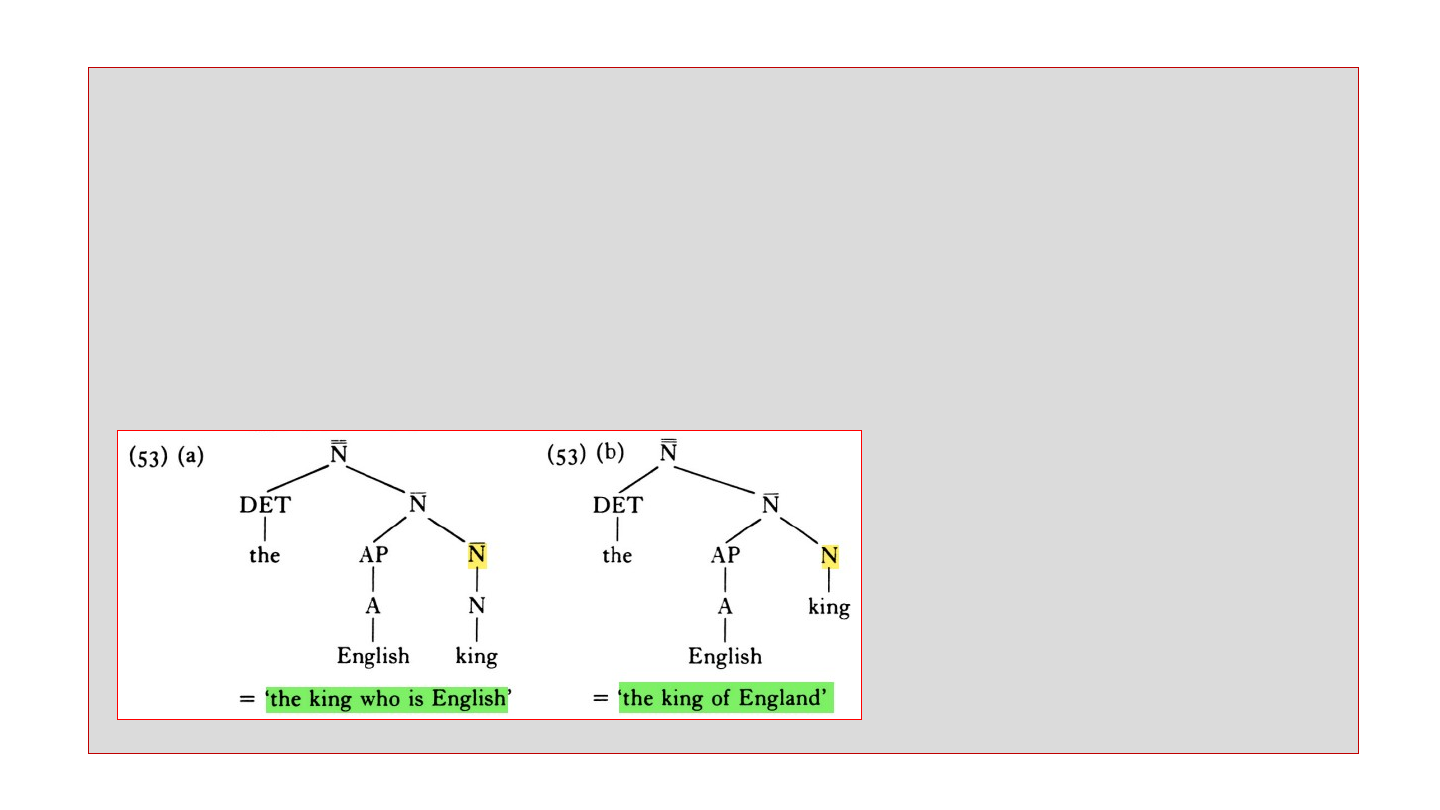
3. A further advantage of X-bar Syntax for capturing a range of struc-
tural ambiguity
(Hornstein and Lightfoot’s(1981) claim)
(51) the English king
The phrase (51) is structurally ambiguous as between the two interpretations:
(52) (a) the king who is English
(b) the king of England
These two interpretations correspond to the respective structure (53) (a) and (b):
(53)(a) gives the interpretation of
‘the king who is English’ if one functions
as a pro-N’ like the English one in (54):
(54) I like the French king, but
not the English one.
(53)(b) gives the interpretation of
‘the king of England’ as a non-proform.
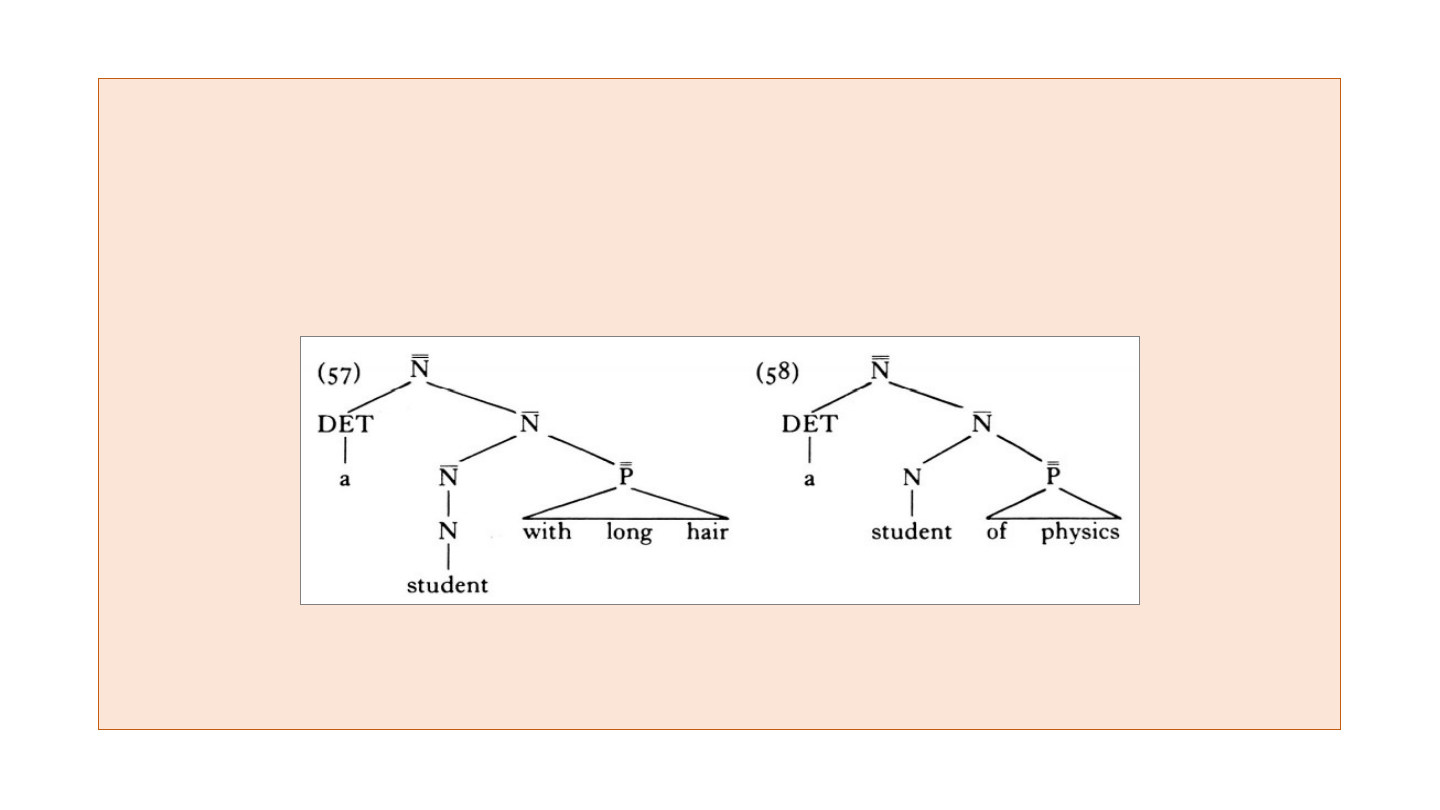
4. Prepositional Phrases may modify either an N or an N-bar
(Hornstein and Lightfoot’s analysis)
The two phrases in (56) have the two distinct structures (57) and (58).
(56) (a) a student with long hair
(b) a student of physics
Hornstein and Lightfoot argue that this distinction has considerable semantic plausibility.
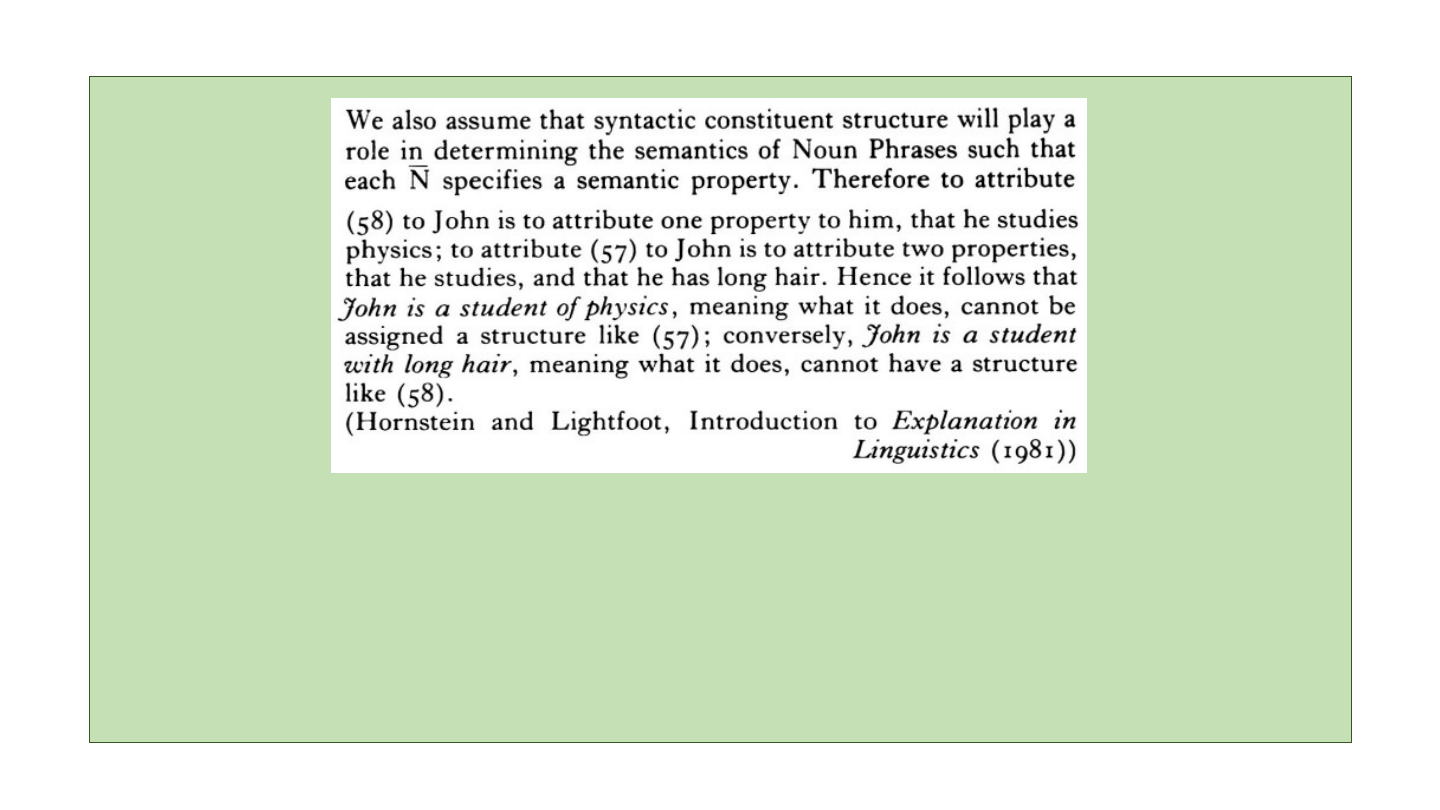
For simpler distinction of the two structures, if we assume two sentences ‘He is a student with
long hair’
and ‘He is a student of physics’, the following interpretations may be given:
(57) may have two semantic properties: ① He is a student ② He has long hair
(58) may not have two semantic properties: ① He is a student ② *He is physics
=> It could be assumed that ‘with long hair’ can be detachable from ‘a student’ but ‘of
physics’ cannot.
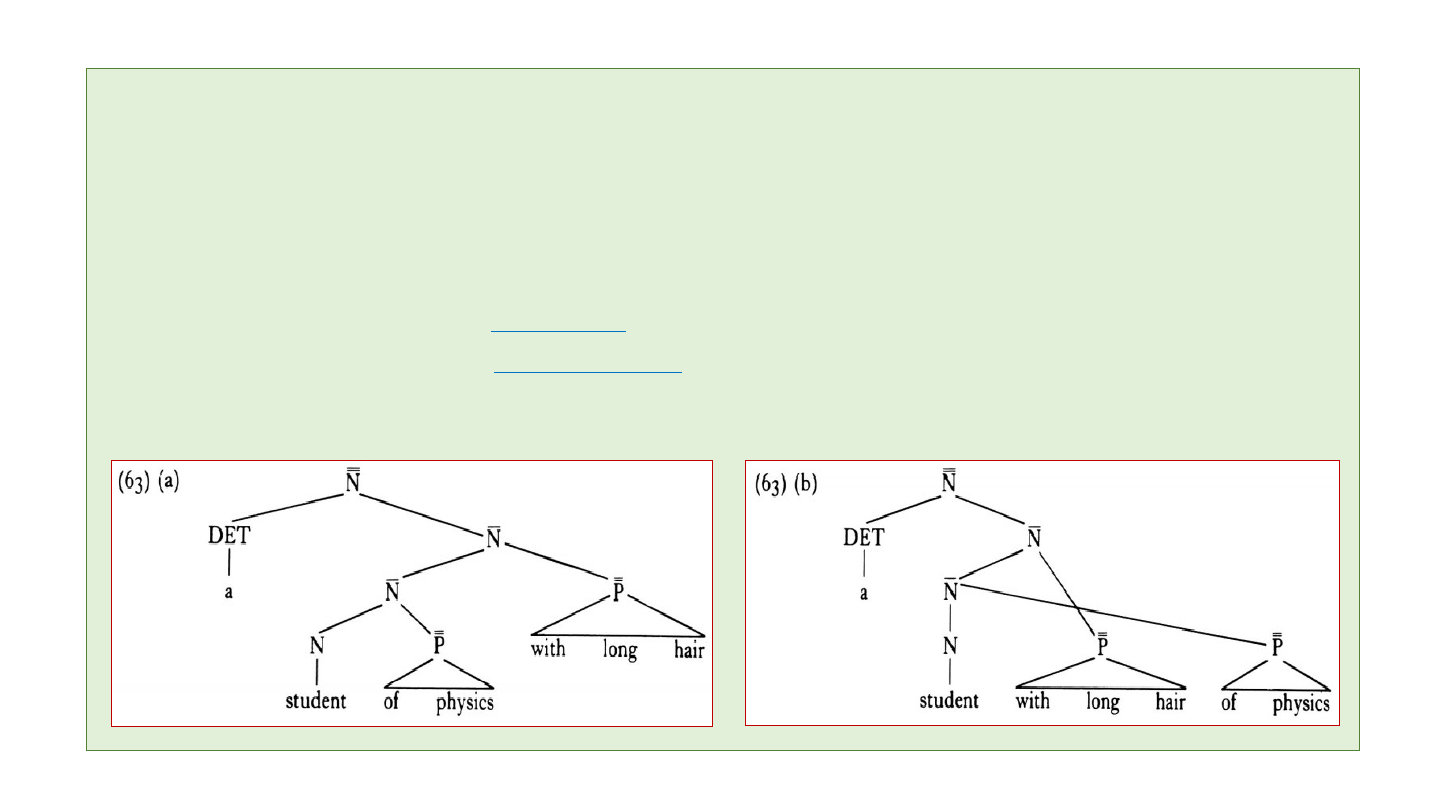
◈ Because it can be assumed that ‘with long hair’ is detachable from ‘a student’,
‘of physics’ can be placed between them as in (62) (a). However, because it can be
assumed that ‘of physics’ is not detachable from ‘a student’, some elements cannot
be
placed between them as in (62) (b).
(62) (a) a student of physics with long hair
(b) *a student with long hair of physics
To see why (62) (b) would be expected to be ‘impossible’, the structures of (63) (a) and
(63) (b) are formulated as bellow. (63) (a) is well-formed but (63) (b) is not.
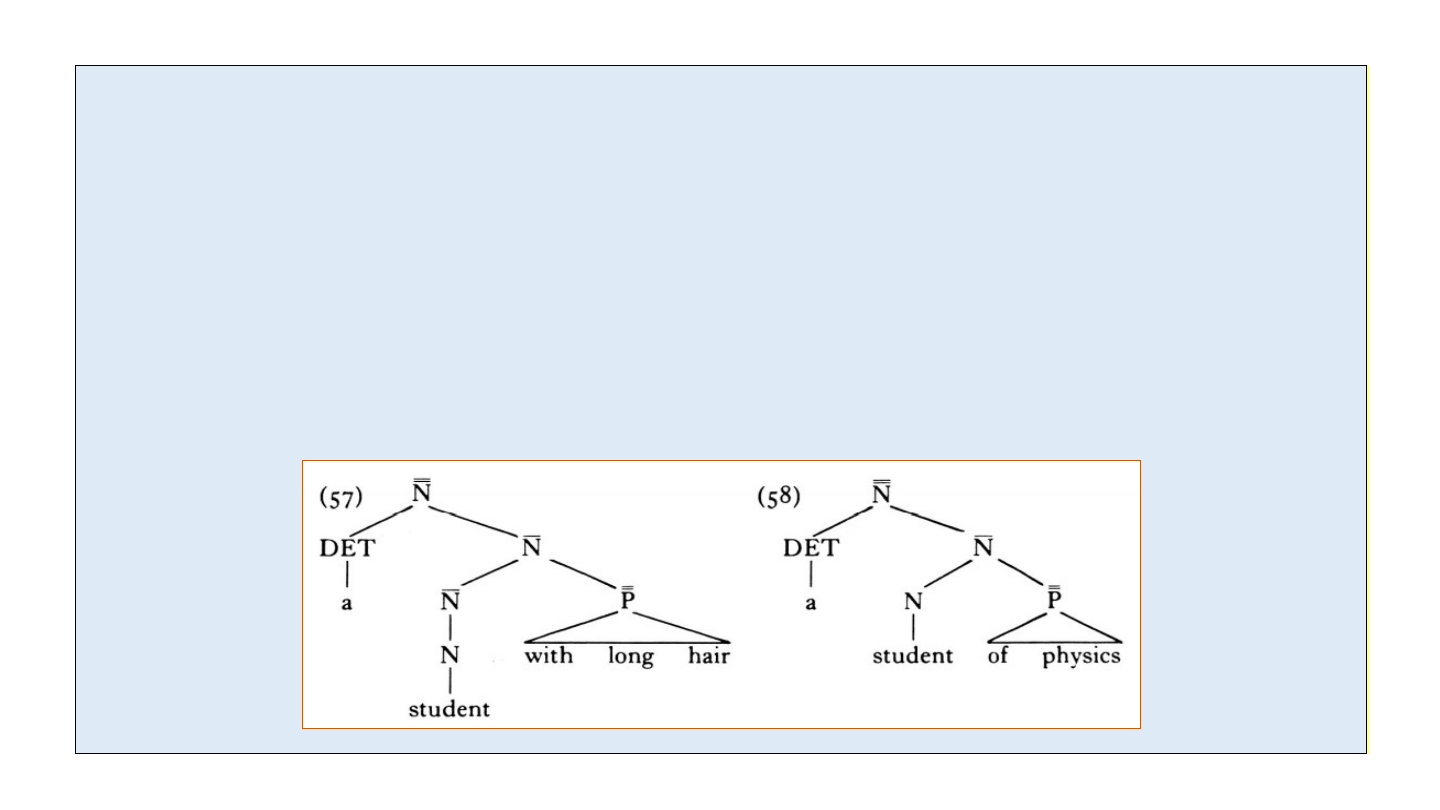
◈ In syntactic structures, the branch crossing is not permitted since linguists have
postulated
traditionally that the branch crossing in tree diagrams could not be well-formed. There-
fore,
the structure (63) (b) violates the ‘no crossing of branches’ restriction.
This proved that N-complement ‘of physics’ cannot be splitted with ‘student’,
whereas
N-bar adjunct ‘with long hair’ can be splitted with ‘student’.
◈ In (57), P’’(with long hair) which is a sister of N’ can be a adjunct, while in (58), P’’(of physics)
which
is a sister of N can be a complement. The complement is regarded as an obligatory ele-
ment for the
head N, but the adjunct is not.
◈ In syntactic structures, the branch crossing is not permitted since linguists have
postulated
traditionally that the branch crossing in tree diagrams could not be well-formed. There
fore,
the structure (63) (b) violates the ‘no crossing of branches’ restriction.
This proved that N-complement ‘of physics’ cannot be splitted with ‘student’,
whereas
N-bar adjunct ‘with long hair’ can be splitted with ‘student’.
◈ In (57), P’’(with long hair) which is a sister of N’ can be a adjunct, while in (58), P’’(of physics)
which
is a sister of N can be a complement. The complement is regarded as an obligatory ele-
ment for the
head N, but the adjunct is not.
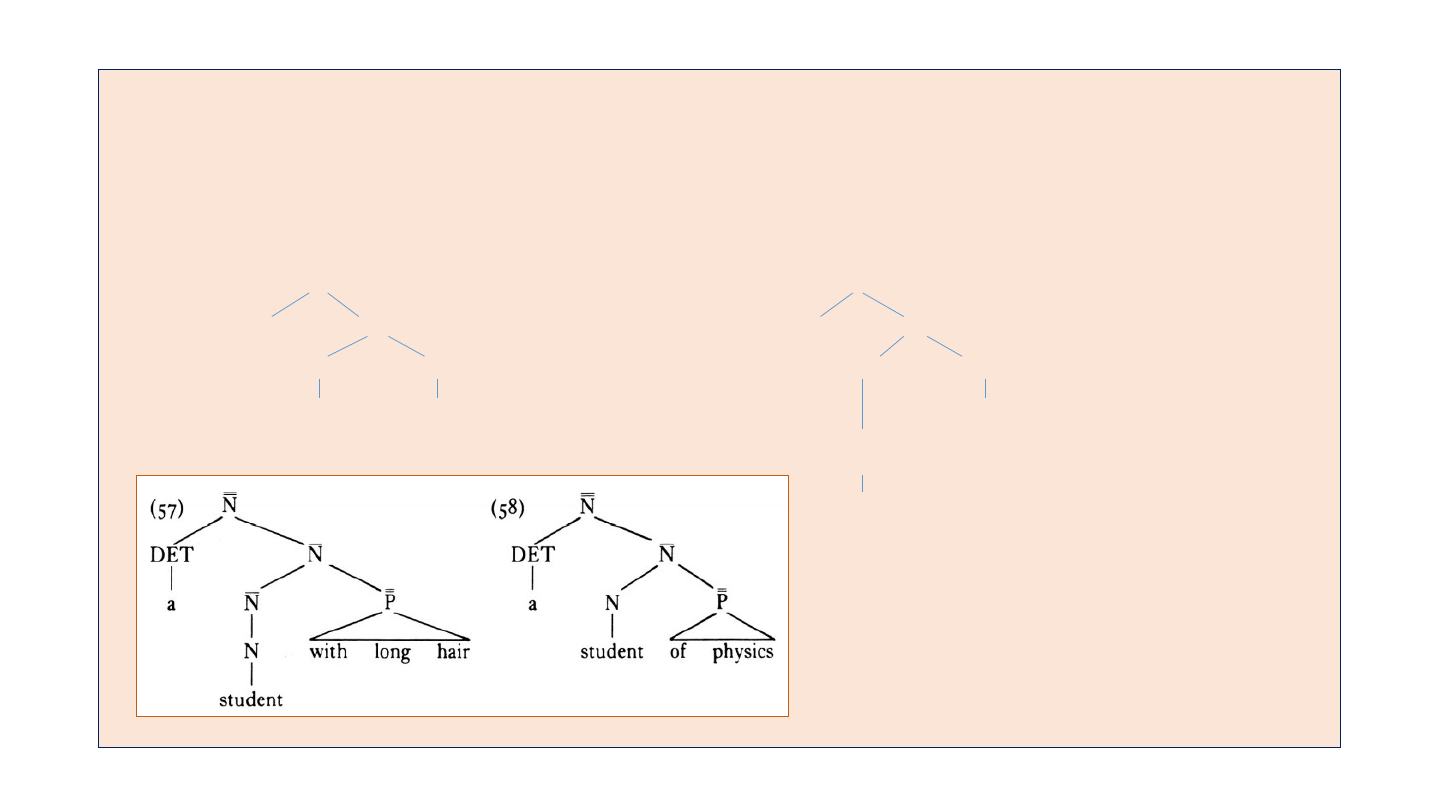
◈ In X-bar Syntax, categories of complements and adjuncts are clarified depending
on the relation with the sister nodes.
[X-bar Syntax Framework]
[1] X’’ (=XP) [2] X’’ (=XP)
X’ X’
X YP X’ YP
(head) (complement) (adjunct)
X
(head)
♣ The complement is required obligatorily,
but the adjunct is optiona.l

◈ Some support for Hornstein and Lightfoot’s analysis might come from coordination
facts. We can coordinate two Prepositional Phrases which are both complements of
an N as in (64), and we can also coordinate two Prepositional Phrases which are
both adjuncts of an N-bar as in (65).
(64) a student of physics and of chemistry
complement complement
(65) a student with long hair and with short arms
adjunct adjunct
But we cannot coordinate one type of Prepositional Phrase with the other as in (66):
(66) (a) *a student of physics and with long hair
(b) *a student with long hair and of physics